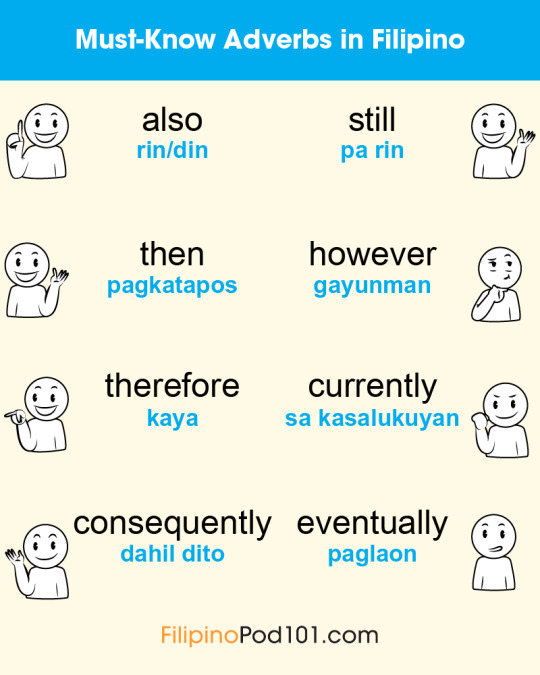Text
wish i could speak every language in the world so i could fully grasp every book and poem ever written in its original form
62K notes
·
View notes
Text
i'm disappointed in my high school Latin class, i took it for 3 semesters and barely remember a single word of Latin, it was basically just a "how to translate" class
7 notes
·
View notes
Text
we should rebuild the tower of babbel we need more languages actually
1K notes
·
View notes
Text
The hardest thing about studying languages and/or linguistics is actually to not make random noises in public because you were thinking too much about a phoneme
314 notes
·
View notes
Text
also since i've been gone i've read my first novel in Spanish :)
5 notes
·
View notes
Text
My kink is identifying loan words from one language to another
1K notes
·
View notes
Text
Notre-Dame De Paris has a bunch of art in it





starting a little collection of French classics we were forced to study in French immersion that I like now as an adult

4 notes
·
View notes
Text
starting a little collection of French classics we were forced to study in French immersion that I like now as an adult

4 notes
·
View notes
Text
French fairy tales
Princess Rosette, Marie-Catherine d’Aulnoy : FR / EN
The fair with golden hair, Marie-Catherine d’Aulnoy : FR / EN
The friendly frog, Marie-Catherine d’Aulnoy : FR / EN
Aurore and Aimée, Jeanne de Beaumont : FR / EN
Beauty and the beast, Jeanne de Beaumont : FR / EN
Bluebeard, Charles Perrault : FR / EN
Cinderella, Charles Perrault : FR / EN
Donkey skin, Charles Perrault : FR / EN
Little red riding hood, Charles Perrault : FR / EN
Little thumb, Charles Perrault : FR / EN
Puss in boots, Charles Perrault : FR / EN
Sleeping beauty, Charles Perrault : FR / EN
The fairy, Charles Perrault : FR / EN
Blondine, Sophie Ségur : FR / EN
Ourson, Sophie Ségur : FR / EN
Sophie’s misfortunes, Sophie Ségur : FR / EN
The little grey mouse, Sophie Ségur : FR / EN
(You can download those stories legally as they are now part of the public domain.)

2K notes
·
View notes
Text
don't even get to call myself a bilingual bisexual cause i learned to many languages
41 notes
·
View notes
Text
191K notes
·
View notes
Note
Hi! Do you have any tips for someone who is just starting out learning Turkish? I like it, and I want to get to a rough B2 level in it.
drill sentence patterns from as early as you can
listen to lots of input, i recommend movies you've already watched in English or your native language dubbed into Turkish, especially kids movies
if you don't already know a language that has similar sentence patterns and grammar as Turkish then the grammar is gonna be the toughest part, and you wanna try to internalize the grammar patterns by listening to hours of native content from as early as possible
8 notes
·
View notes
Text
5 years into learning Turkish i still don't fully understand what artık means
11 notes
·
View notes
Text
reblog this if you want anonymous opinions of you
241K notes
·
View notes
Note
Hi! I'm studying B1.2/B2 level Spanish and I want to learn * words to express things more*...(recently I learned,, conectores del discurso,, and some ,,frases hechas,,)
I'm sorry if you already posted something like this, I'm a new follower and I just saw that you have this account since 2013! (P.S.between it's hard for me to study words for any language; I have to write 1 word 10 times to memorize it,and others just read it once)
Have a great day!🌸
So I'm going to attach some of the (what I call) academic connectors. They're just words that I find really helpful for explaining things or especially in oral exams or written exams to sound more coherent and link your sentences together.
I suppose the more correct term is something like particles of speech or something along those lines, but they're the kinds of phrases you will want to know if you have any intention of writing in Spanish and especially if it's in an academic setting:
de hecho = in fact, as a matter of fact
no obstante = nevertheless, regardless
de todas formas = in any event, regardless
sin embargo = however, nevertheless
con respecto a (algo/alguien) = regarding (something/someone), with regards to (something/someone)
en cuanto a (algo/alguien) = regarding, with regards to
por lo general = in general
generalmente/normalmente = generally / normally
mayormente = for the most part, mostly, mainly
en su mayoría = mainly, in its majority, for the most part
en realidad = actually, in reality
actualmente = currently, nowadays
hoy en día = currently, nowadays, today
antiguamente = formerly, in the past, previously
por lo tanto = therefore, as such
a su paso = “in its wake”, “in its path”
a medida que = "as", "while (something is/was happening)"
ya que... = since, given that...
así = like that, that way
así que... = so..., that being the case...
pues... = then / since..., that being the case...
entonces = then [in a sequence of events] / then, consequently
por consiguiente / consiguientemente = consequently, as a consequence
de una vez = for once
de una vez por todas = once and for all
por enésima vez = "for the umpteenth time", "for the hundredth/millionth time" [hyperbolic]
al principio = in the beginning, at the start
al fin = at the end, in the end, at last, finally
lo primero es lo primero = “first things first”
por último, finalmente = lastly, finally, ultimately
dicho eso... = that being said...
susodicho/a = aforementioned
de antemano = beforehand
a lo largo de (periodo de tiempo) = throughout (time period)
durante = during / for
últimamente = lately, recently
según (algo/alguien) = according to (something/someone) / as per
de acuerdo con (algo) = as per (something), in accordance with
por lo visto = apparently, "it would seem..."
desde luego (que) = of course, surely
en absoluto = absolutely not, in no way
a pesar de (algo/alguien) = despite, in spite of (something/someone)
pese a (algo/alguien), despite, in spite of (something/someone)
a partir de = starting (at a point), since, from
a partir de hoy = starting today, from today on
a partir de aquí = from here on out
a partir de ahora = starting now, from now on
a partir de entonces = from that point on, from then on
a partir de mañana = as of tomorrow, starting tomorrow
de ahora/hoy en adelante = from now on, from this point on
en tal caso... = in that case...
por defecto = by default
principalmente = for the most part, mainly, mostly
además = furthermore, in addition
por casualidad = by chance, coincidentally
al azar = at random, randomly
al menos / por lo menos = at least
al contrario = on the contrary
por el contrario = by contrast
en cambio = in contrast, by contrast, conversely
al revés = upside-down, inside-out, topsy-turvy
(todo) patas arriba = “upside-down”, “everything in chaos”, “turned on its ear/head”
de igual manera = in the same way
de igual forma = in the same way
del mismo modo = in the same way
igualmente = likewise, in the same way
de manera diferente = differently
de otra manera = differently, in a different way
de otro modo = differently
tal y como = just like, exactly
tal y como es = exactly how it is
de/en cierto modo = in some way / in a sense
de cierta manera = in some way / in a sense
en algún sentido = in a sense
en cierto sentido = in a sense
de una manera u otra = one way or another
de una forma u otra = one way or another
apenas = hardly, barely
a duras penas = hardly, barely
a secas = plainly, simply
en lugar de, en vez de = instead (of)
[you’d phrase this as en lugar de algo “instead of something”, or en su lugar “in its stead” or “in its place”; it takes some getting used to]
por accidente, accidentalmente = accidentally, by mistake
todavía = still
de vez en cuando = “from time to time”
a la vez = at the same time, simultaneously
en promedio, como media = on average
por las buenas = “the easy way”
por las malas = “the hard way”
de corto plazo = short-term
de largo plazo = long-term
a cambio (de) = in exchange (for)
a propósito = on purpose, not an accident
por cierto = by the way
a/en todos los efectos = for all intents and purposes
en todo sentido = for all intents and purposes
mientras tanto = meanwhile
hasta = until, up to / even, including
hasta que + subjuntivo = until (something happens; subjunctive)
incluso = even, including
al pie de la letra = “to a T”, exactly, precisely, “by the book”
tomar al pie de la letra = to be very precise and methodical
(tomar algo) a la ligera = (to take something) lightly
por dondequiera / por doquier = “everywhere”, “every which way”, “all over the place”
de cabo a rabo = completely, through and through
al fin y al cabo = “at the end of the day”
por (el) otro lado = “on the other hand”
que yo sepa = as far as I know
que tú sepas = as far as you know
que nosotros sepamos = as far as we know
[follows conjugation rules for subjunctive saber]
es decir (que)... = that is to say..., in other words...
o sea... = in other words...
And obviously por and para which are their own issue but they come up a lot. Which is understandable but they’re a big hurdle even for people in the C levels
There are others that are better understood with examples because it’s not enough to just write it. So:
aun vs. aún
-aun with no accent is “even” and is synonymous with hasta or incluso
-aún with the accent is “yet” and is synonymous with todavía
o sea
-The expression o sea is used as “in other words”; do not confuse it with óseo/a which is “osseous” or “bone-related”, an adjectival form of hueso “bone”. Some people do write it as one word “osea” but it really should be separate... and sea is technically subjunctive ser
certain expressions with femenino de indeterminación
-a solas “one-on-one” or “privately”
-a sabiendas “knowing full well”
-a ciegas “blindly” or “in the dark”
-a escondidas “secretly”
And many others, some of which were in the longer vocab list above
subjunctive phrases [use with care]
-There are many phrases with subjunctive that you eventually need to know and they can be helpful in essays, though again this is its own topic. Things like para que “so that (something will happen)” or con tal (de) que “as long as (something happens)” are sort of subjunctive phrases of unmet conditions... things like “unless” or “until” things happen are subjunctive in many cases. Some like aunque become “although” with indicative and “even though / even if” in subjunctive... I say use with care because this is more of a functional vocab list not a grammar lesson.
solo, sólo, y solamente
-solo/a as an adjective means “only/single/a single person” or it means “alone”
-solo as an adverb is synonymous with sólo. The accent mark there is a vocal inflection so it’s like “ONLY”. You use either as “only” or “just”. Since it’s an adverb, solo will not change for gender/plural
-solamente is “solely” and is synonymous with solo/sólo
pero vs. sino
-pero is “but” when you’re changing the topic or providing different information; no es de Alemania pero habla alemán “he’s not German but he speaks German”
-sino is “but rather” when you’re correcting someone’s statement; no es alemán sino francés “he’s not German (but rather), he’s French”
I would also say it’s worth understanding how ya works because it’s got a lot of uses
I’m also going to attach some links to my tags that will help you navigate and find more of what you might be interested in:
Vocabulary
Idiomatic Expressions (especially the older entries tend to be more universal; the newer ones are expressions I tend to find and am interested in sharing so if you go into my archive and look for the tag “idiomatic expressions” or “expresiones idiomaticas”
Grammar ...which is probably not what you need right at this moment, but in case you want to peruse my stuff on different grammatical concepts I have everything from present tense to imperfect subjunctive
523 notes
·
View notes
Photo

Must-Know Filipino Adverbs! 📘📍 P.S. Learn Filipino with the best FREE online resources, just click here https://www.filipinopod101.com/?src=tumblr_adverbs_image_090921
2 notes
·
View notes
